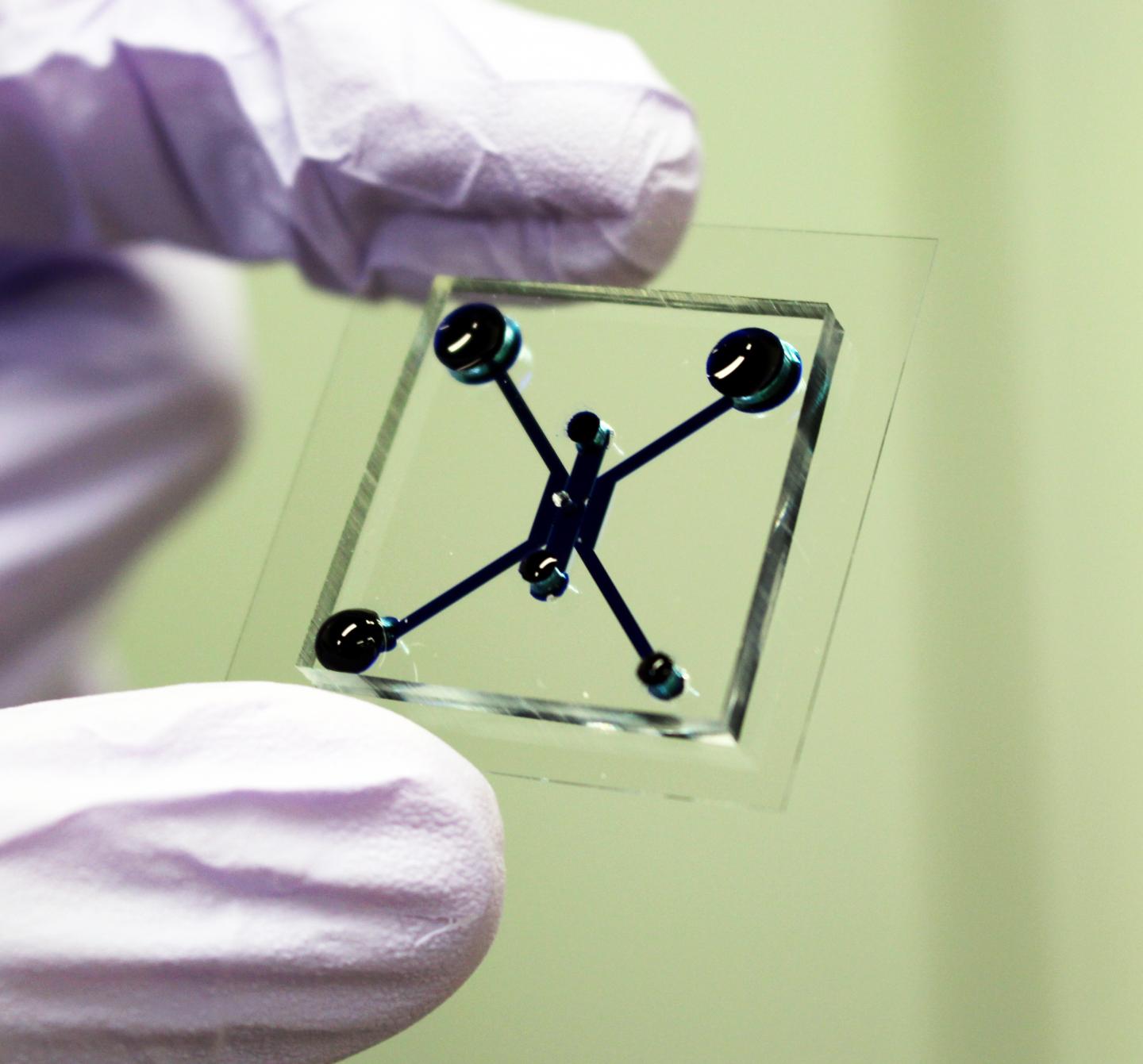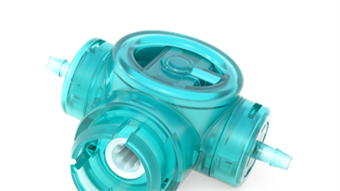Lab-grown 'tumor-on-a-chip' improves cancer drug screening
Amy J. Born | December 23, 2019 The device allows researchers to mimic the environment inside the body to screen for better cancer-fighting drugs. Source: Kyoto University/Yokokawa LabResearchers in Japan have developed a device to streamline the screening process for cancer drugs. The process typically involves years of evaluating thousands of potential candidates only to have them fail at the clinical level because animal models and cells cultured in a dish do not often transfer to human biology, according to researcher Yuji Nashimoto.
The device allows researchers to mimic the environment inside the body to screen for better cancer-fighting drugs. Source: Kyoto University/Yokokawa LabResearchers in Japan have developed a device to streamline the screening process for cancer drugs. The process typically involves years of evaluating thousands of potential candidates only to have them fail at the clinical level because animal models and cells cultured in a dish do not often transfer to human biology, according to researcher Yuji Nashimoto.
The coin-sized "tumor-on-a-chip" developed at Kyoto University is a three-dimensional structure with blood vessels. The significant improvement achieved by this latest device is its ability to recreate the blood flow that allows a tumor to thrive.
"This 'perfusable vasculature' allows us to administer nutrients and drugs into the system to mimic the environment in the body," Nashimoto said. "This allows us to have a clearer picture of the effectiveness of cancer-treating compounds."
With this device, the researchers have been able to study the effects of varying flow rates and doses of therapeutic drugs, adding clarity and precision to the process.
"We hypothesize that at low doses the benefit of the nutrient flow outweighs the effect of the anti-tumor drug. It proves the importance of blood flow in the vasculature when screening for drugs," said Ryuji Yokokawa, who led the team.
The researchers are optimistic that the device will advance drug discovery by expediting tests for potential new drugs and may also eliminate the need for animal testing.
The study appears in the journal Biomaterials.




